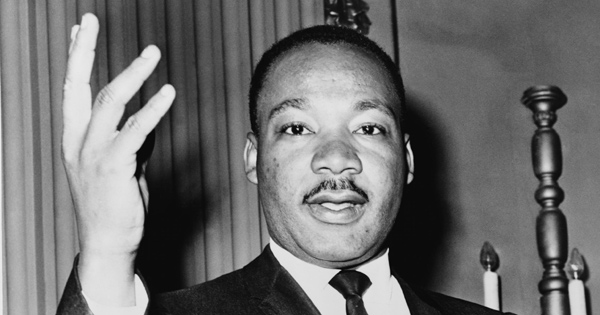The Drum Major Instinct
Written by Rev. Michael Schuenemeyer
The “Drum Major Instinct” sermon is a remarkable message not only because it is the last sermon Martin Luther King, Jr. preached at Ebenezer Baptist Church before his assassination, and not only because he discusses his own death and how he wants to be remembered, but because of the skillful way King uses the “Drum Major Instinct” theme to offer a deep critique of contemporary culture and an inspired, practical vision for living the Gospel.
The most familiar, if not most popular, part of the sermon is likely the last quarter, but it is the first three quarters of the message that is critical to take in. We forget that in this sermon King spends most of the sermon critiquing the dangerous down-side of the drum major instinct. He addresses white supremacy, racism, economic injustice and war.
Like so many of his sermons, this one has incredible relevance for us today, an election year in which various forms of the drum major instinct are on parade all across our nation. It is also what makes the message King brings home so poignant, the call of the Gospel to be a drum major for justice and peace, a drum major for serving humanity, that we may “make of this old world a new world.”
Excerpts from “The Drum Major Instinct”
When the church is true to its nature, (Whoo) it says, “Whosoever will, let him come.” (Yes) And it does not supposed to satisfy the perverted uses of the drum major instinct. It’s the one place where everybody should be the same, standing before a common master and savior. (Yes, sir) And a recognition grows out of this—that all men are brothers because they are children (Yes) of a common father.
[…]
… And when we were in jail in Birmingham the other day, the white wardens and all enjoyed coming around the cell to talk about the race problem. And they were showing us where we were so wrong demonstrating. And they were showing us where segregation was so right. And they were showing us where intermarriage was so wrong. …And then we got down one day to the point—that was the second or third day—to talk about where they lived, and how much they were earning. And when those brothers told me what they were earning, I said, “Now, you know what? You ought to be marching with us. [laughter] You’re just as poor as Negroes.” And I said, “You are put in the position of supporting your oppressor, because through prejudice and blindness, you fail to see that the same forces that oppress Negroes in American society oppress poor white people. (Yes) And all you are living on is the satisfaction of your skin being white, and the drum major instinct of thinking that you are somebody big because you are white. And you’re so poor you can’t send your children to school. You ought to be out here marching with every one of us every time we have a march.”
Now that’s a fact. That the poor white has been put into this position, where through blindness and prejudice, (Make it plain) he is forced to support his oppressors. And the only thing he has going for him is the false feeling that he’s superior because his skin is white—and can’t hardly eat and make his ends meet week in and week out. (Amen)
Delivered February 4, 1968. Read the full text or listen to the audio.
Rev. Michael Schuenemeyer is the UCC Executive for Health and Wholeness Advocacy.
